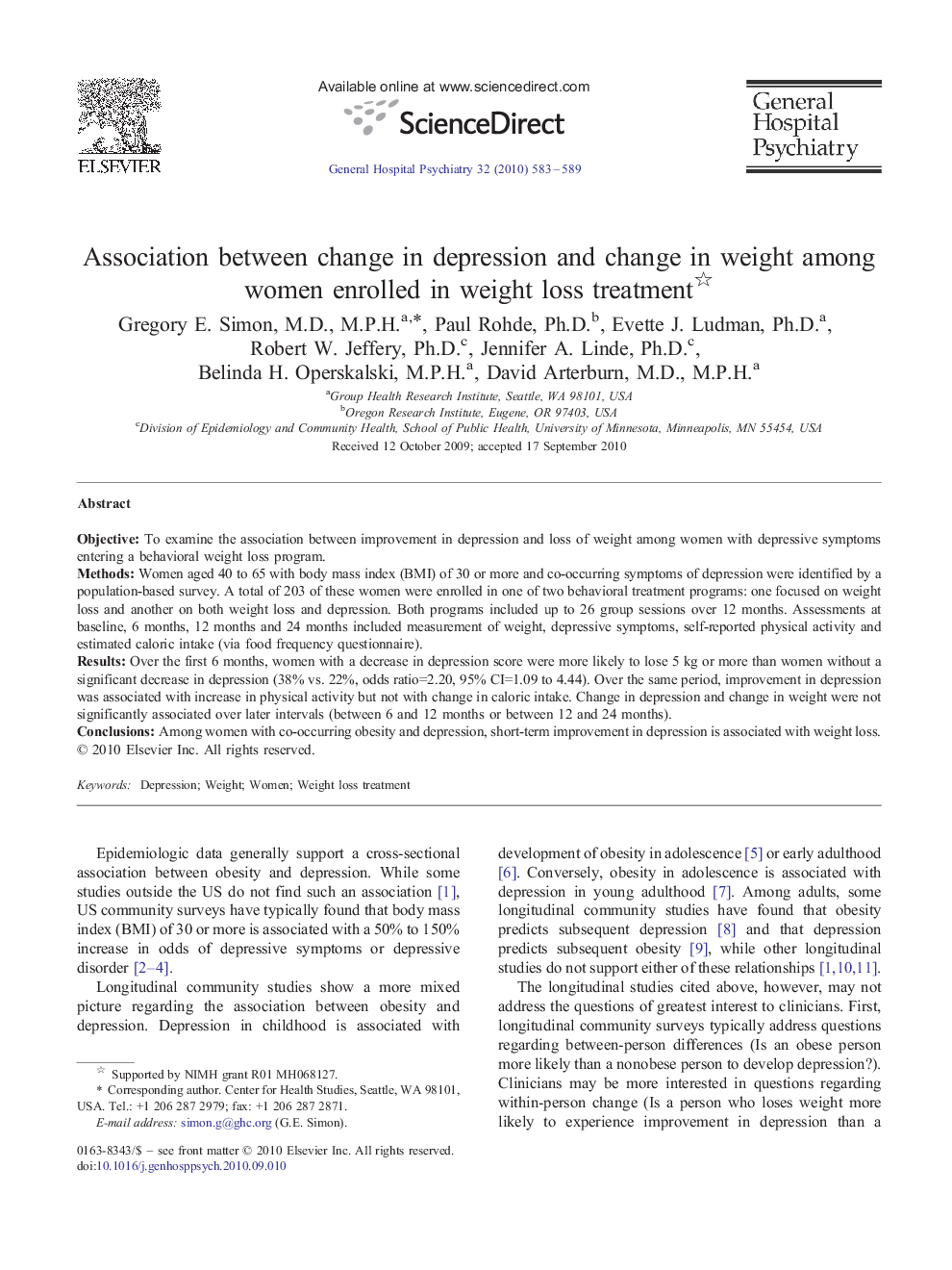| Article ID | Journal | Published Year | Pages | File Type |
|---|---|---|---|---|
| 3237887 | General Hospital Psychiatry | 2010 | 7 Pages |
ObjectiveTo examine the association between improvement in depression and loss of weight among women with depressive symptoms entering a behavioral weight loss program.MethodsWomen aged 40 to 65 with body mass index (BMI) of 30 or more and co-occurring symptoms of depression were identified by a population-based survey. A total of 203 of these women were enrolled in one of two behavioral treatment programs: one focused on weight loss and another on both weight loss and depression. Both programs included up to 26 group sessions over 12 months. Assessments at baseline, 6 months, 12 months and 24 months included measurement of weight, depressive symptoms, self-reported physical activity and estimated caloric intake (via food frequency questionnaire).ResultsOver the first 6 months, women with a decrease in depression score were more likely to lose 5 kg or more than women without a significant decrease in depression (38% vs. 22%, odds ratio=2.20, 95% CI=1.09 to 4.44). Over the same period, improvement in depression was associated with increase in physical activity but not with change in caloric intake. Change in depression and change in weight were not significantly associated over later intervals (between 6 and 12 months or between 12 and 24 months).ConclusionsAmong women with co-occurring obesity and depression, short-term improvement in depression is associated with weight loss.
